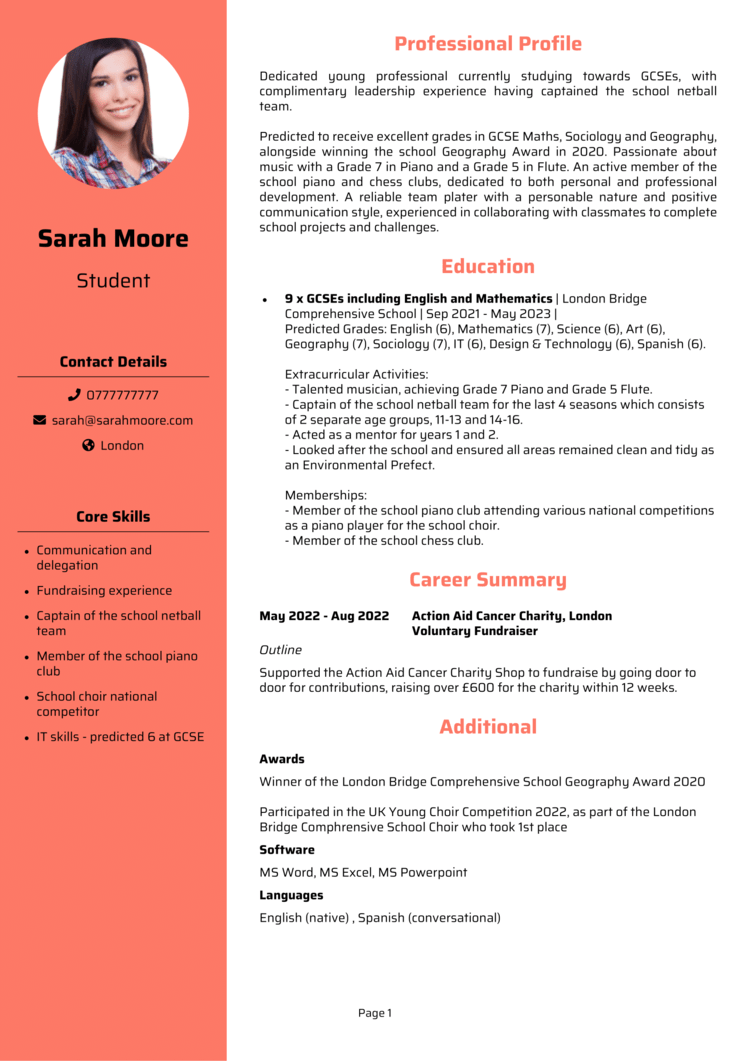Writing a CV can feel like a daunting task, especially when you’re just starting out and don’t have a long list of previous jobs to showcase. Many people assume that a strong CV hinges entirely on extensive work experience, but that’s simply not true. It’s completely normal to find yourself in this position, whether you’re a recent graduate, a student looking for your first part-time role, or someone re-entering the workforce after a break.
The good news is that you possess valuable skills and experiences that employers are looking for, even if they aren’t traditional paid jobs. The key is knowing how to identify these strengths and present them effectively. This article will guide you through creating an impressive cv template without work experience, turning your perceived lack of experience into a compelling narrative of potential and capability.
Highlighting Your Strengths When Experience Is Limited
When you don’t have a traditional work history to lean on, your CV needs to shine a spotlight on other areas that demonstrate your abilities and commitment. Think beyond the conventional employment section and consider every aspect of your life that has contributed to your personal and professional development. This includes academic achievements, personal projects, volunteer work, and even hobbies that have honed specific skills.
Employers understand that everyone starts somewhere. What they’re truly looking for is evidence of your potential, your willingness to learn, and your ability to contribute to their team. By focusing on your transferable skills and relevant experiences from non-traditional settings, you can build a robust and persuasive profile that captures their attention and makes a strong case for your candidacy.
Emphasize Transferable Skills
Transferable skills are competencies you’ve developed in one area that can be applied effectively in another. These are incredibly valuable to employers, as they indicate your readiness to adapt and succeed in a new role. Don’t underestimate the skills you’ve gained from group projects at school, leading a club, participating in sports, or even managing a household budget. These experiences teach you things like teamwork, problem-solving, time management, and communication.

To identify your transferable skills, reflect on situations where you’ve had to overcome challenges, collaborate with others, or take initiative. For instance, organizing a charity event showcases leadership and organizational skills, while excelling in a complex academic subject demonstrates analytical thinking and persistence. Pinpointing these skills allows you to articulate exactly what you can bring to an employer, even if it’s not from a formal job title.
- Communication: Presenting, public speaking, writing reports, active listening.
- Teamwork: Collaborating on projects, participating in group activities, mediating disputes.
- Problem-Solving: Troubleshooting issues, finding creative solutions, critical thinking.
- Leadership: Leading projects, mentoring peers, organizing events, taking initiative.
- Time Management: Meeting deadlines, balancing multiple responsibilities, planning.
- Adaptability: Learning new software, adjusting to new environments, handling unexpected changes.
- Technical Skills: Proficiency in software (Microsoft Office, design tools), coding languages, social media management.
Structuring Your CV for Maximum Impact
The structure of your CV is just as important as its content, especially when you’re designing a cv template without work experience. A clear, logical, and professional layout helps recruiters quickly find the information they need and makes a positive first impression. Start with a compelling personal statement or objective that immediately tells the employer who you are, what you’re looking for, and what unique value you can offer.
Following your personal statement, the education section becomes paramount. Detail your academic achievements, including degrees, diplomas, and significant coursework. Don’t just list subjects; highlight projects, dissertations, or specific modules that are relevant to the role you’re applying for. Mention any awards, scholarships, or high grades to demonstrate academic excellence and dedication.
Beyond education, incorporate sections that showcase your practical abilities and commitment. A “Projects” section can detail academic or personal ventures where you applied skills like research, design, or programming. A “Volunteer Experience” section highlights your initiative, empathy, and ability to contribute to a team or cause. Even “Extracurricular Activities” can demonstrate leadership, teamwork, and commitment if described effectively.
Finally, dedicate a prominent section to your “Skills.” This is where you can list both your hard skills (like software proficiency, languages, or specific technical tools) and your soft skills (like communication, problem-solving, or critical thinking). Using bullet points here makes it easy for recruiters to scan and quickly identify if your abilities align with their requirements. Remember to proofread meticulously for any typos or grammatical errors – a clean CV reflects professionalism.
- Contact Information: Your name, phone, email, and LinkedIn profile (if applicable).
- Personal Statement/Objective: A concise paragraph highlighting your aspirations and key strengths.
- Education: Degrees, schools, dates, relevant coursework, achievements, GPA (if impressive).
- Skills: A categorized list of your technical and soft skills.
- Projects: Detailed descriptions of academic or personal projects, including your role and achievements.
- Volunteer Experience: Roles, organizations, dates, and key responsibilities/contributions.
- Extracurricular Activities/Achievements: Clubs, sports, societies, awards, or unique accomplishments.
- Certifications (Optional): Any relevant courses or professional certifications.
Crafting an impactful CV without traditional work experience is not only achievable but can also be incredibly effective when approached strategically. By focusing on your transferable skills, academic achievements, volunteer work, and personal projects, you build a narrative that showcases your potential, enthusiasm, and readiness to contribute. Remember, every experience, no matter how informal, contributes to who you are and what you can offer an employer.
Take the time to reflect on your unique journey and articulate your strengths clearly and confidently. Your dedication to creating a well-structured and thoughtfully detailed CV will speak volumes about your professionalism and determination. Embrace this opportunity to highlight your capabilities and step confidently into your next big adventure.
